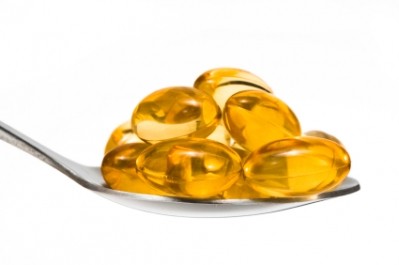Levels of omega-3 in pills match stated levels: Study
The study, published in Nutrition & Dietetics, is said to be the first that compares the level of omega-3 fatty acids in a range commercially available oil supplements in Australia. The researchers compared the levels of omega-3 in the supplements with manufacturers' self-reported information regarding omega-3 fatty acid content.
A report on the authenticity of Northern hemisphere sources of commercial fish oil and fish oil capsules in the Journal of Agricultural and Food Chemistry (2007, Vol. 55, pp. 38-47) reported findings “showing evidence of ‘mislabelling and/or adulteration’ of samples reported to be salmon oil and cod liver oil.”
The new study’s findings point to the success of the Australian Code of Good Manufacturing Practice (GMP) for Medicinal Products in ensuring high quality standards throughout the manufacturing process.
Global implications
The authors noted that although the research was carried out on supplements commercially available in Australia, due to the global markets that many manufacturers of omega-3 supplements work in, the studies findings also have relevance to international consumers and regulatory authorities.
“A lot of people take these dietary supplements but there was a gap in scientific knowledge so it’s nice to find that what’s in the capsules is what’s on the label,” said lead researcher Karina Hamilton, from the University of the Sunshine Coast, Australia.
“We observed a high level of congruency between our experimental data and disclosures by the manufacturers, which tended to support current practice in pre-market assessment of complementary medicines in Australia,” wrote the researchers.
Omega-3
“Omega-3 fatty acids in fish oil supplements may produce a range of health benefits that include heart protection, control of arthritis and reduction in risk of Alzheimer’s disease and dementia,” said Hamilton.
Humans do not produce endogenous omega-3 fatty acids and so they must be obtained through the ingestion of omega-3 fatty acids in foods. However, high doses of omega-3s can be difficult to achieve through diet alone, and are often attained through ingestion of dietary supplements.
Hamilton said that fish oil supplements containing defined ratios of eicosapentaenoic acid (EPA) and docosahexaenoic acid (DHA) are tailored for particular consumer groups within the population.
“For most fish oil supplements, manufacturers are not obligated to assay each batch provided that the suppliers' competency to provide a valid assay for the ingredient has been verified,” stated Hamilton.
“To date, no published studies have compared the composition of fatty acid supplements that are commercially available in Australia with the manufacturers' disclosure of fatty acid composition,” she said.
The aim the new study was to quantify the composition of individual fatty acids in 19 different dietary oil supplements available in Australian retail stores, and to estimate the mass of these fatty acids, comparing findings with those disclosed by the manufacturers where available.
Study details
Hamilton reported “a high level of congruency” for the composition of EPA and DHA reported by manufacturers and determined experimentally, with a mean difference of 13.2 mg for EPA and 12.8mg for DHA between the quoted and actual figures.
The highest amount of saturated fatty acids contained in one capsule was calculated to be 352 mg, which when ingested, would equate to an intake of only 1.5 percent of the recommended upper daily limit of saturated fatty acids, wrote Hamilton and co workers..
“These findings indicate that the ingestion of several fish oil capsules per day would contribute minimally to the total daily intake of saturated fatty acids … but would contribute substantially to intake of omega-3 fatty acids and the purported health benefits of these supplements,” they stated.
Several supplements, with proportions of EPA and DHA at levels above 58 percent of the total mass of oil, were reported to have higher concentrations of omega-3’s than the compositions identified in lipid fractions extracted from seafood, “suggesting that higher levels were achieved through processes aimed at concentrating natural marine oils.”
Source: Nutrition & Dietetics
Volume 67, Issue 3, pages 182–189, doi: 10.1111/j.1747-0080.2010.01453.x
“Evaluation of the composition of omega-3 fatty acids in dietary oil supplements”
Authors: K. Hamilton, P. Brooks, M. Holmes, J. Cunningham, F.D. Russell.














